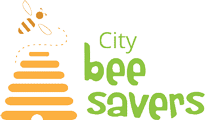PREPARATION
Before winter and before moving honey bees we engaged in 2 1/2 months of continuous preparations. It was important that we made sure each hive was balanced and had what it needed for winter survival. One way we balanced hives involved adding resources from strong colonies to weaker ones. At the end of summer some of our hives still had 4 brood boxes or more and were chuck full of bees. Other colonies had just 1 brood box and in need of bees, resources or both. This meant weeks of opening each hive and carefully moving frames from one to another. Working with 148 colonies at this time, it took several days to complete just one pass of resource trading. We needed to preformed this exercise numerous times. One cannot take to much from one hive or give to much to another at any given time. Knowing how to add resources so the recipients will accept them is something we also were watching. This process was started in mid August; adding and subtracting until each colony was ready to move. It is our ultimate goal to see each exit winter strong albeit, we have several other goals to meet along the way. More on those shortly.

SHIPPING BEES

This neatly stacked row of hives and pallets is exactly how they should appear before loading our truck for Florida. These specially made pallets contain 4 colonies. Each colony has it’s own entrance and bottom board. When shipped the pallets get stacked 3 high.
STAGING PALLETS

Once all the hives were balanced and pallets equalized the bees were ready to be moved. First we needed to stage all of the pallets so our truck could be loaded quickly and easily. Without a forklift there really wasn’t any easy to it. The lightest hives were about 50 lbs, while others were over 100 lbs. Each pallet contains 4 hive so No pallet was under 200 pounds and many over 400 pounds. My Assistant and I were the only forklift in this initial move. We hoisted each onto the back of our truck and brought them to our staging area. This took us several days to accomplish because many hives were located around the Chicago-land area like you see below.



Eventually all 30 pallets with 120 hives were loaded onto our truck for a 1 1/2 day trip to Florida. Timing arrival was critical. In cold weather the bees tightly cluster to keep the queen and cluster center at 95 F. When bees are clustered these hive boxes full of bees are much easier to manage for moving.
Honey bees can’t fly for more then a minute or so once the temperatures dip below 50 F. Our colonies had been cooped up for the last several weeks without much opportunity to exit and relieve themselves.
Once we were in Florida’s 70+ F temperatures the bees took every opportunity they could to exit the hive. The video below illustrates this well.
Anticipating this accelerated activity we knew it would be important to plan our arrival before day break. Had we arrived any later the bees would have exited their hive and stayed active until evening. That meant we would have had to wait until evening before traveling again. This would have added an extra day to our trip. Fortunately we arrived just before the sun did.
The video below shows you how active our bees became once the sun and temperatures rose.

We were warned not to add sugar syrup to the internal feeders we placed in each hive before leaving Illinois. Thank goodness we listened to this advice. The flowering season had just ended in Florida and our bees were frantic to replenish their honey stores after having experienced winter for the last 3 weeks. If we added syrup to each hive now the stronger hives would be tempted to rob out the weaker hives. Instead we decided to open feed the bees and good thing we did. The bees emptied 50 gallons of syrup in less then 24 hours and started emptying another 50 gallons after that. With plenty of syrup and dry pollen the bees were occupied at the feeding stations. Another beekeeper down the road wasn’t so lucky. After placing syrup in all his 460 hive feeders, 92 of the weaker colonies were robbed out and died of starvation within two days. A Sad and expensive mistake we were lucky to avoid.

